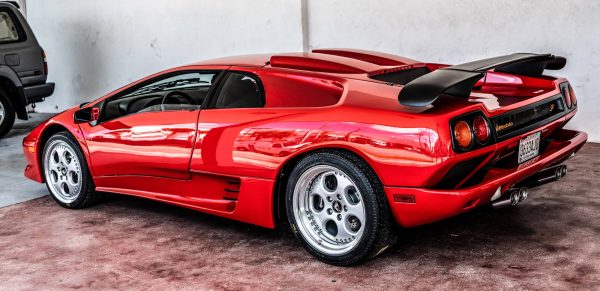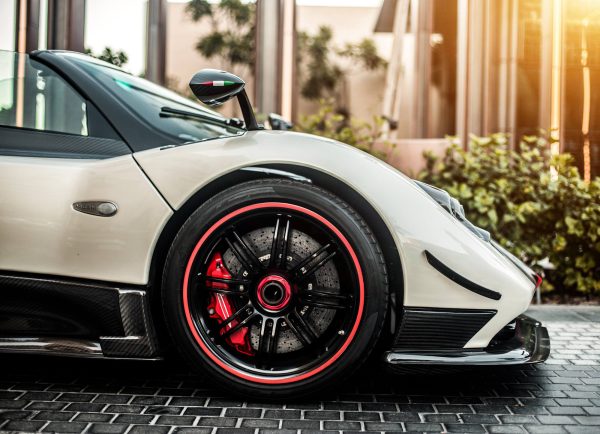Owning a sports car in the United Kingdom presents a unique set of challenges that potential buyers should carefully consider. While these vehicles offer unparalleled excitement and performance, their ownership experience can be significantly different from standard vehicles, with distinct variations between modern and classic models.

The financial implications of sports car ownership extend far beyond the initial purchase price. Modern sports cars, with their advanced technology and sophisticated engineering, command premium prices and require specialised (read: expensive) maintenance. Classic sports cars, while potentially less expensive to purchase, sometimes demand extensive restoration work and ongoing maintenance from specialist mechanics. Insurance costs for both types are substantial, though classic cars may benefit from specialist policies or low-mileage policies.
Modern sports cars typically consume fuel at a higher rate due to their powerful engines, whilst classic models, designed in an era before fuel efficiency was a primary concern, can be particularly thirsty, plus have significant problems with emissions (you wouldn’t buy one if you’re at all concerned about the environment, for example).

The British climate poses challenges for sports car owners. The frequent rain and occasional snow can be particularly troublesome for powerful rear-wheel-drive vehicles. Modern sports cars have traction control systems to mitigate these issues, whereas classic sports cars, lacking these safety features, require more skilled handling in adverse conditions. Convertible models, whether modern or classic, face additional weather-related challenges, with British weather limiting top-down driving opportunities.
Practicality concerns affect both modern and classic sports cars, though in different ways. Modern sports cars, while designed with some practical considerations, still suffer from limited boot space and restricted visibility due to aerodynamic design and crash test performance requirements. Classic sports cars often present even greater practical challenges, with smaller cabins, minimal storage space, and ergonomic layouts that reflect their era’s different priorities; expect that in an accident, you could become part of the crumple zones! Both types typically feature low ground clearance, which can be problematic on speed bumps and rough British roads.
The UK’s road infrastructure presents particular challenges. Narrow country lanes and urban streets can be daunting in wider modern sports cars, while classic models, though often more compact, may lack the power steering and manoeuvrability features that make parking and low-speed manoeuvring easier. Modern sports cars, with their substantial power output, can feel frustrated in heavy traffic and speed-restricted zones. Classic sports cars, while generally slower, often require more physical effort to drive, which can be tiring in stop-start traffic; they are also prone to overheating or breaking down when driven for long distances at low speeds.
Depreciation affects modern and classic sports cars differently. Modern vehicles typically experience significant depreciation in their early years, particularly high-performance models with high running costs. Classic sports cars, however, may appreciate in value if properly maintained, though this requires significant investment in preservation and restoration.
Emissions regulations and taxation in the UK particularly impact sports car ownership. Modern high-performance vehicles often fall into expensive tax brackets due to their CO2 emissions, which you can calculate here, while classic cars manufactured before 1981 are exempt from road tax. However, classic cars face increasing scrutiny in urban areas implementing low emission zones, potentially limiting their usability in cities like London.
For daily use, both types present distinct challenges. Modern sports cars offer better reliability and comfort but at the cost of high fuel consumption and running costs. Classic sports cars, while potentially more characterful, often lack modern conveniences and reliability, making them less suitable for regular use. Neither type particularly suits family transport needs or regular commuting in urban environments.
The ownership experience also varies significantly between modern and classic sports cars regarding maintenance. Modern vehicles require specialist diagnostic equipment and technical expertise, often available only at authorised dealers or specialist garages. Classic cars need mechanics with specific historical knowledge and restoration skills, who are becoming increasingly rare and expensive to engage.
These considerations suggest that potential sports car owners should carefully evaluate their priorities and intended use. While both modern and classic sports cars offer unique pleasures, their practical limitations and ongoing costs in the UK context may outweigh the benefits for many potential owners. In fact, most sports car owners also own a more practical vehicle for utilitarian driving.
It could be said that if you simply want the thrills of acceleration, you can get that from many modern electric vehicles, but if you also crave the cachet, the looks and the exclusivity, a sports car (or even a hypercar) has to be on your shopping list.
